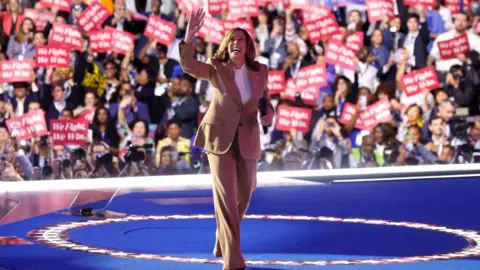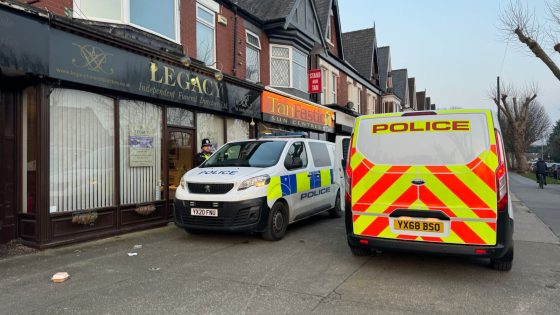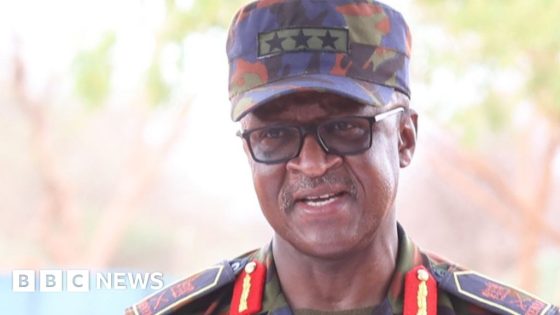 Getty Images
Getty ImagesModern political conventions tend to be slickly produced, carefully stage-managed events. And despite its struggles with staying on schedule and the unusual way its presidential nominee was chosen, this year’s Democratic gathering in Chicago has been no different.
The Democrats on the convention stage have tried to put their best foot forward by talking about Kamala Harris’s qualifications and character, her plan for the economy and issues on which the party has broad public support, like abortion rights and healthcare.
But what they don’t talk about – the issues and areas they have largely tried to avoid, at least so far – says as much about their electoral strategies and weakness as what they choose to highlight. Here are three notable omissions half-way through the party extravaganza.
Immigration
Ever since undocumented crossings at the US-Mexico border surged early in the Biden presidency, the subject of immigration has been a liability for Democrats. Republicans have blamed the administration’s policies for encouraging the historic rise in border incursions, and the flood of new arrivals – many of whom have been transported by conservative governors to populous Democratic cities – has strained public services.
The Harris campaign appears to recognise her vulnerability on the issue. One of its first television adverts blamed Donald Trump for sinking bipartisan border-security legislation earlier this year and touted Ms Harris’s record prosecuting “transnational gangs, the drug cartels and the human traffickers” while she was California’s attorney general.
But immigration appears to be an issue the Harris team would rather talk about in 50-second television adverts than from the stage in Chicago. The topic has got a few lines here and there, but compared to the 2020 convention – when Donald Trump’s hard line on immigration was a primary focus of attack – the silence has been conspicuous.
Reports suggest this could change on Wednesday night, with some speakers due to to address the issue.
Identity politics
Four years ago, amidst the mass protests over the death of George Floyd at the hands of Minneapolis police officers, the Democratic Party – and the nation as a whole – engaged in a sometimes animated debate about institutional racism and how American history is presented.
While many mainstream Democrats avoided the aggressive calls to “defund the police”, most engaged in the discussion of how America could take steps to address what they viewed as the corrosive legacy of slavery in the nation’s businesses, classrooms and government, including by promoting DEI – diversity, equity and inclusion.
More recently, the issue of transgender rights has been an animating force among segments of the Democratic coalition – particularly in the face of Republican efforts to limit or prohibit the ability of children to receive gender care.
Neither topic has received much attention in the Democratic convention arena so far. There was an emotional tribute to the civil rights movement early on Monday that culminated in a wheelchair-bound Jesse Jackson – who marched with Martin Luther King Jr and ran for the Democratic presidential nomination in the 1980s – taking the stage. But DEI and other remedies have received short shrift.
“DEI has become a dog-whistle code” used to undermine minorities in powerful positions, said Shavon Arline-Bradley, the president of the National Council of Negro Women, which is organising voter outreach efforts in presidential battleground states.
“Our country was founded on opportunities for all men and all women, but we’re not hearing that now, because a lot of people don’t want to alienate a certain base of folk that are afraid of this.”
At this convention, alienating the fewest number of potential voters has been the name of the game.
And while abortion rights have been a daily focus at the convention, transgender issues – the other hot-button social topic currently – have been largely ignored in the programming that makes national television.
Ms Arline-Bradley warns that by not talking about questions of equity and inclusion, the problems will linger.
“We should talk about them, because this party is the most inclusive and diverse party,” she said. “Show it, activate it and live by those values.”
 Getty Images
Getty ImagesInternal strife
The last Democratic convention in 2020 was largely virtual – conducted in empty halls and television studios – due to the Covid pandemic. In 2016, when thousands of Democrats gathered in Philadelphia, the rifts within the party were on full display.
Supporters of Democratic Socialist Bernie Sanders, who finished second behind Hillary Clinton for that year’s nomination, repeatedly disrupted the proceedings and organised protests around the convention hall.
The party was divided on topics like universal healthcare, free college tuition and, more broadly, whether Democrats should rely on support from deep-pocketed donors, big business and what Mr Sanders labelled the “corporate oligarchy”.
Those divisions still exist. Mr Sanders gave a speech Tuesday night railing against the corrupting influence of money in politics. But his speech was immediately followed by Illinois Governor JB Pritzker, who bragged about being a billionaire, and venture capitalist and former American Express chief executive Ken Chenault. The big tent, at least for now, covered obvious differences of policy and opinion.
Another current area of sharp divide within the party is US military support for Israel amidst the ongoing war in Gaza. Thousands of protesters have demonstrated outside the convention’s security perimeter, but the intense disagreements have received little attention inside the convention hall.
Mr Sanders received applause when he called for an immediate ceasefire in Gaza, and Joe Biden turned some heads when he said in his speech on Monday that protesters “have a point” when they say there have been too many civilian deaths.
But all this is a far cry from 2016, when some antiwar convention attendees booed former four-star General John Allen and former Secretary of Defence and CIA Director Leon Panetta during their speeches.

More on the US election
- SIMPLE GUIDE: Everything you need to know about the vote
- ANALYSIS: Three ways Trump will try to end Harris honeymoon
- EXPLAINER: Where the election could be won and lost
- FACT-CHECK: Trump falsely claims Harris crowd was faked
- VOTERS: What Democrats make of Tim Walz as VP
Source Agencies




